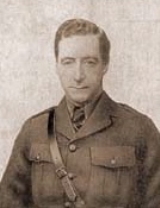
Irish heads of government since 1919
Encyclopedia
Ireland
The head of governmentHead of government
Head of government is the chief officer of the executive branch of a government, often presiding over a cabinet. In a parliamentary system, the head of government is often styled prime minister, chief minister, premier, etc...
, or prime minister, of Ireland is known as the Taoiseach
Taoiseach
The Taoiseach is the head of government or prime minister of Ireland. The Taoiseach is appointed by the President upon the nomination of Dáil Éireann, the lower house of the Oireachtas , and must, in order to remain in office, retain the support of a majority in the Dáil.The current Taoiseach is...
and heads a cabinet called the Government. However, since 1919, heads of government in the Irish state have borne a number of titles. Under the short-lived Irish Republic
Irish Republic
The Irish Republic was a revolutionary state that declared its independence from Great Britain in January 1919. It established a legislature , a government , a court system and a police force...
of 1919–1922 the head of government was known first as the Príomh Aire
President of Dáil Éireann
The President of Dáil Éireann was the leader of the revolutionary Irish Republic of 1919–1921. The office, also known as Príomh Aire , was created in the Dáil Constitution adopted by Dáil Éireann, the parliament of the Republic, at its first meeting in January 1919. This provided that the...
or President of Dáil Éireann and later as the President of the Republic
President of the Irish Republic
President of the Republic was the title given to the head of the Irish ministry or Aireacht in August 1921 by an amendment to the Dáil Constitution, which replaced the previous title, Príomh Aire or President of Dáil Éireann...
. Under the 1922–1937 Irish Free State
Irish Free State
The Irish Free State was the state established as a Dominion on 6 December 1922 under the Anglo-Irish Treaty, signed by the British government and Irish representatives exactly twelve months beforehand...
the head of government was the President of the Executive Council
President of the Executive Council of the Irish Free State
The President of the Executive Council of the Irish Free State was the head of government or prime minister of the Irish Free State which existed from 1922 to 1937...
. There also briefly existed, immediately before the creation of the Irish Free State, an interim office of Chairman of the Provisional Government
Chairman of the Provisional Government of Southern Ireland
The Chairman of the Provisional Government of Southern Ireland was a transitional post established in January 1922, lasting until the creation of the Irish Free State in December 1922 in the Provisional Government of Southern Ireland....
. For a brief period in 1921 the offices of President of the Republic and Chairman of the Provisional Government existed simultaneously.
Offices
| Head | Deputy | Cabinet | State | Constitution | Date |
|---|---|---|---|---|---|
| President of Dáil Éireann President of Dáil Éireann The President of Dáil Éireann was the leader of the revolutionary Irish Republic of 1919–1921. The office, also known as Príomh Aire , was created in the Dáil Constitution adopted by Dáil Éireann, the parliament of the Republic, at its first meeting in January 1919. This provided that the... |
N/A | Aireacht Aireacht The Aireacht or Ministry was the cabinet of the 1919–1922 Irish Republic. The Ministry was originally established by the Dáil Constitution adopted by the First Dáil in 1919, after it issued the Irish Declaration of Independence... (Ministry) |
Irish Republic Irish Republic The Irish Republic was a revolutionary state that declared its independence from Great Britain in January 1919. It established a legislature , a government , a court system and a police force... |
Dáil Constitution Dáil Constitution The Constitution of Dáil Éireann , more commonly known as the Dáil Constitution, was the constitution of the 1919–22 Irish Republic. It was adopted by the First Dáil at its first meeting on 21 January 1919 and theoretically remained in force for four years. As adopted it consisted of only five... |
21 January 1919 – 6 December 1922 |
| Chairman of the Provisional Government Chairman of the Provisional Government of Southern Ireland The Chairman of the Provisional Government of Southern Ireland was a transitional post established in January 1922, lasting until the creation of the Irish Free State in December 1922 in the Provisional Government of Southern Ireland.... |
N/A | Provisional Government Provisional Government of Southern Ireland The provisional Government of Southern Ireland was the provisional government for the administration of Southern Ireland between 16 January 1922 and 6 December 1922. The government was effectively a transitional administration for the period between the ratifying of the Anglo-Irish Treaty and the... |
Southern Ireland Southern Ireland Southern Ireland was a short-lived autonomous region of the United Kingdom established on 3 May 1921 and dissolved on 6 December 1922.Southern Ireland was established under the Government of Ireland Act 1920 together with its sister region, Northern Ireland... |
Irish Free State (Agreement) Act, 1922 Irish Free State (Agreement) Act 1922 The Irish Free State Act 1922 was an Act of the British Parliament passed on 31 March 1922. It gave the force of law to the Anglo-Irish Treaty, which was scheduled to the Act.-Main provisions:... |
3 May 1921 – 6 December 1922 |
| President of the Executive Council President of the Executive Council of the Irish Free State The President of the Executive Council of the Irish Free State was the head of government or prime minister of the Irish Free State which existed from 1922 to 1937... |
Vice President Vice-President of the Executive Council of the Irish Free State The Vice-President of the Executive Council was the deputy head of government of the 1922–1937 Irish Free State, and the second most senior member of the Executive Council... |
Executive Council Executive Council of the Irish Free State The Executive Council was the cabinet and de facto executive branch of government of the 1922–1937 Irish Free State. Formally, the role of the Executive Council was to "aid and advise" the Governor-General who would exercise the executive authority on behalf of the King... |
Irish Free State Irish Free State The Irish Free State was the state established as a Dominion on 6 December 1922 under the Anglo-Irish Treaty, signed by the British government and Irish representatives exactly twelve months beforehand... |
Constitution of the Irish Free State Constitution of the Irish Free State The Constitution of the Irish Free State was the first constitution of the independent Irish state. It was enacted with the adoption of the Constitution of the Irish Free State Act 1922, of which it formed a part... |
6 December 1922 – 29 December 1937 |
| Taoiseach Taoiseach The Taoiseach is the head of government or prime minister of Ireland. The Taoiseach is appointed by the President upon the nomination of Dáil Éireann, the lower house of the Oireachtas , and must, in order to remain in office, retain the support of a majority in the Dáil.The current Taoiseach is... |
Tánaiste Tánaiste The Tánaiste is the deputy prime minister of Ireland. The current Tánaiste is Eamon Gilmore, TD who was appointed on 9 March 2011.- Origins and etymology :... |
Government | Ireland Republic of Ireland Ireland , described as the Republic of Ireland , is a sovereign state in Europe occupying approximately five-sixths of the island of the same name. Its capital is Dublin. Ireland, which had a population of 4.58 million in 2011, is a constitutional republic governed as a parliamentary democracy,... |
Constitution of Ireland Constitution of Ireland The Constitution of Ireland is the fundamental law of the Irish state. The constitution falls broadly within the liberal democratic tradition. It establishes an independent state based on a system of representative democracy and guarantees certain fundamental rights, along with a popularly elected... |
29 December 1937 – present |
List of office holders
| # | Name | Picture | Entered Office | Left Office | Party | |
|---|---|---|---|---|---|---|
| 1. | Cathal Brugha Cathal Brugha Cathal Brugha was an Irish revolutionary and politician, active in the Easter Rising, Irish War of Independence, and the Irish Civil War and was the first Ceann Comhairle of Dáil Éireann.-Background:... |
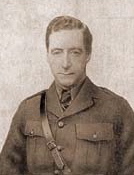 |
21 January 1919 | 1 April 1919 | Sinn Féin Sinn Féin Sinn Féin is a left wing, Irish republican political party in Ireland. The name is Irish for "ourselves" or "we ourselves", although it is frequently mistranslated as "ourselves alone". Originating in the Sinn Féin organisation founded in 1905 by Arthur Griffith, it took its current form in 1970... |
|
| 2. | Éamon de Valera Éamon de Valera Éamon de Valera was one of the dominant political figures in twentieth century Ireland, serving as head of government of the Irish Free State and head of government and head of state of Ireland... (1st time) |
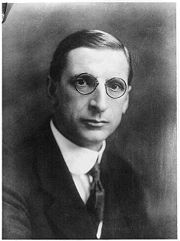 |
1 April 1919 | 9 January 1922 | Sinn Féin Sinn Féin Sinn Féin is a left wing, Irish republican political party in Ireland. The name is Irish for "ourselves" or "we ourselves", although it is frequently mistranslated as "ourselves alone". Originating in the Sinn Féin organisation founded in 1905 by Arthur Griffith, it took its current form in 1970... |
|
| 3. | Arthur Griffith Arthur Griffith Arthur Griffith was the founder and third leader of Sinn Féin. He served as President of Dáil Éireann from January to August 1922, and was head of the Irish delegation at the negotiations in London that produced the Anglo-Irish Treaty of 1921.-Early life:... |
.jpg) |
10 January 1922 | 12 August 1922 | Sinn Féin Sinn Féin Sinn Féin is a left wing, Irish republican political party in Ireland. The name is Irish for "ourselves" or "we ourselves", although it is frequently mistranslated as "ourselves alone". Originating in the Sinn Féin organisation founded in 1905 by Arthur Griffith, it took its current form in 1970... (Pro-Treaty faction) |
|
| 4. | Michael Collins Michael Collins (Irish leader) Michael "Mick" Collins was an Irish revolutionary leader, Minister for Finance and Teachta Dála for Cork South in the First Dáil of 1919, Director of Intelligence for the IRA, and member of the Irish delegation during the Anglo-Irish Treaty negotiations. Subsequently, he was both Chairman of the... |
16 January 1922 | 22 August 1922 | Sinn Féin Sinn Féin Sinn Féin is a left wing, Irish republican political party in Ireland. The name is Irish for "ourselves" or "we ourselves", although it is frequently mistranslated as "ourselves alone". Originating in the Sinn Féin organisation founded in 1905 by Arthur Griffith, it took its current form in 1970... (Pro-Treaty faction) |
||
| 5. | W. T. Cosgrave | 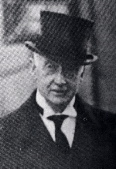 |
22 August 1922 | 9 March 1932 | Cumann na nGaedheal | |
| Éamon de Valera Éamon de Valera Éamon de Valera was one of the dominant political figures in twentieth century Ireland, serving as head of government of the Irish Free State and head of government and head of state of Ireland... (2nd time) |
 |
9 March 1932 | 18 February 1948 | Fianna Fáil Fianna Fáil Fianna Fáil – The Republican Party , more commonly known as Fianna Fáil is a centrist political party in the Republic of Ireland, founded on 23 March 1926. Fianna Fáil's name is traditionally translated into English as Soldiers of Destiny, although a more accurate rendition would be Warriors of Fál... |
||
| 6. | John A. Costello John A. Costello John Aloysius Costello , a successful barrister, was one of the main legal advisors to the government of the Irish Free State after independence, Attorney General of Ireland from 1926–1932 and Taoiseach from 1948–1951 and 1954–1957.... (1st time) |
18 February 1948 | 13 June 1951 | Fine Gael Fine Gael Fine Gael is a centre-right to centrist political party in the Republic of Ireland. It is the single largest party in Ireland in the Oireachtas, in local government, and in terms of Members of the European Parliament. The party has a membership of over 35,000... |
||
| Éamon de Valera Éamon de Valera Éamon de Valera was one of the dominant political figures in twentieth century Ireland, serving as head of government of the Irish Free State and head of government and head of state of Ireland... (3rd time) |
 |
13 June 1951 | 2 June 1954 | Fianna Fáil Fianna Fáil Fianna Fáil – The Republican Party , more commonly known as Fianna Fáil is a centrist political party in the Republic of Ireland, founded on 23 March 1926. Fianna Fáil's name is traditionally translated into English as Soldiers of Destiny, although a more accurate rendition would be Warriors of Fál... |
||
| John A. Costello John A. Costello John Aloysius Costello , a successful barrister, was one of the main legal advisors to the government of the Irish Free State after independence, Attorney General of Ireland from 1926–1932 and Taoiseach from 1948–1951 and 1954–1957.... (2nd time) |
2 June 1954 | 20 March 1957 | Fine Gael Fine Gael Fine Gael is a centre-right to centrist political party in the Republic of Ireland. It is the single largest party in Ireland in the Oireachtas, in local government, and in terms of Members of the European Parliament. The party has a membership of over 35,000... |
|||
| Éamon de Valera Éamon de Valera Éamon de Valera was one of the dominant political figures in twentieth century Ireland, serving as head of government of the Irish Free State and head of government and head of state of Ireland... (4th time) |
 |
20 March 1957 | 23 June 1959 | Fianna Fáil Fianna Fáil Fianna Fáil – The Republican Party , more commonly known as Fianna Fáil is a centrist political party in the Republic of Ireland, founded on 23 March 1926. Fianna Fáil's name is traditionally translated into English as Soldiers of Destiny, although a more accurate rendition would be Warriors of Fál... |
||
| 7. | Seán Lemass Seán Lemass Seán Francis Lemass was one of the most prominent Irish politicians of the 20th century. He served as Taoiseach from 1959 until 1966.... |
23 June 1959 | 10 November 1966 | Fianna Fáil Fianna Fáil Fianna Fáil – The Republican Party , more commonly known as Fianna Fáil is a centrist political party in the Republic of Ireland, founded on 23 March 1926. Fianna Fáil's name is traditionally translated into English as Soldiers of Destiny, although a more accurate rendition would be Warriors of Fál... |
||
| 8. | Jack Lynch Jack Lynch John Mary "Jack" Lynch was the Taoiseach of Ireland, serving two terms in office; from 1966 to 1973 and 1977 to 1979.... (1st time) |
10 November 1966 | 14 March 1973 | Fianna Fáil Fianna Fáil Fianna Fáil – The Republican Party , more commonly known as Fianna Fáil is a centrist political party in the Republic of Ireland, founded on 23 March 1926. Fianna Fáil's name is traditionally translated into English as Soldiers of Destiny, although a more accurate rendition would be Warriors of Fál... |
||
| 9. | Liam Cosgrave Liam Cosgrave Liam Cosgrave is an Irish Fine Gael politician who served as Taoiseach and as Leader of Fine Gael . He was a Teachta Dála from 1943 to 1981.... |
14 March 1973 | 5 July 1977 | Fine Gael Fine Gael Fine Gael is a centre-right to centrist political party in the Republic of Ireland. It is the single largest party in Ireland in the Oireachtas, in local government, and in terms of Members of the European Parliament. The party has a membership of over 35,000... |
||
| Jack Lynch Jack Lynch John Mary "Jack" Lynch was the Taoiseach of Ireland, serving two terms in office; from 1966 to 1973 and 1977 to 1979.... (2nd time) |
5 July 1977 | 11 December 1979 | Fianna Fáil Fianna Fáil Fianna Fáil – The Republican Party , more commonly known as Fianna Fáil is a centrist political party in the Republic of Ireland, founded on 23 March 1926. Fianna Fáil's name is traditionally translated into English as Soldiers of Destiny, although a more accurate rendition would be Warriors of Fál... |
|||
| 10. | Charles Haughey Charles Haughey Charles James "Charlie" Haughey was Taoiseach of Ireland, serving three terms in office . He was also the fourth leader of Fianna Fáil... (1st time) |
11 December 1979 | 30 June 1981 | Fianna Fáil Fianna Fáil Fianna Fáil – The Republican Party , more commonly known as Fianna Fáil is a centrist political party in the Republic of Ireland, founded on 23 March 1926. Fianna Fáil's name is traditionally translated into English as Soldiers of Destiny, although a more accurate rendition would be Warriors of Fál... |
||
| 11. | Garret FitzGerald Garret FitzGerald Garret FitzGerald was an Irish politician who was twice Taoiseach of Ireland, serving in office from July 1981 to February 1982 and again from December 1982 to March 1987. FitzGerald was elected to Seanad Éireann in 1965 and was subsequently elected to Dáil Éireann as a Fine Gael TD in 1969. He... (1st time) |
 |
30 June 1981 | 9 March 1982 | Fine Gael Fine Gael Fine Gael is a centre-right to centrist political party in the Republic of Ireland. It is the single largest party in Ireland in the Oireachtas, in local government, and in terms of Members of the European Parliament. The party has a membership of over 35,000... |
|
| Charles Haughey Charles Haughey Charles James "Charlie" Haughey was Taoiseach of Ireland, serving three terms in office . He was also the fourth leader of Fianna Fáil... (2nd time) |
9 March 1982 | 14 December 1982 | Fianna Fáil Fianna Fáil Fianna Fáil – The Republican Party , more commonly known as Fianna Fáil is a centrist political party in the Republic of Ireland, founded on 23 March 1926. Fianna Fáil's name is traditionally translated into English as Soldiers of Destiny, although a more accurate rendition would be Warriors of Fál... |
|||
| Garret FitzGerald Garret FitzGerald Garret FitzGerald was an Irish politician who was twice Taoiseach of Ireland, serving in office from July 1981 to February 1982 and again from December 1982 to March 1987. FitzGerald was elected to Seanad Éireann in 1965 and was subsequently elected to Dáil Éireann as a Fine Gael TD in 1969. He... (2nd time) |
 |
14 December 1982 | 10 March 1987 | Fine Gael Fine Gael Fine Gael is a centre-right to centrist political party in the Republic of Ireland. It is the single largest party in Ireland in the Oireachtas, in local government, and in terms of Members of the European Parliament. The party has a membership of over 35,000... |
||
| Charles Haughey Charles Haughey Charles James "Charlie" Haughey was Taoiseach of Ireland, serving three terms in office . He was also the fourth leader of Fianna Fáil... (3rd time) |
10 March 1987 | 11 February 1992 | Fianna Fáil Fianna Fáil Fianna Fáil – The Republican Party , more commonly known as Fianna Fáil is a centrist political party in the Republic of Ireland, founded on 23 March 1926. Fianna Fáil's name is traditionally translated into English as Soldiers of Destiny, although a more accurate rendition would be Warriors of Fál... |
|||
| 12. | Albert Reynolds Albert Reynolds Albert Reynolds , served as Taoiseach of Ireland, serving one term in office from 1992 until 1994. He has been nominated for the Nobel Peace Prize... |
11 February 1992 | 15 December 1994 | Fianna Fáil Fianna Fáil Fianna Fáil – The Republican Party , more commonly known as Fianna Fáil is a centrist political party in the Republic of Ireland, founded on 23 March 1926. Fianna Fáil's name is traditionally translated into English as Soldiers of Destiny, although a more accurate rendition would be Warriors of Fál... |
||
| 13. | John Bruton John Bruton John Gerard Bruton is an Irish politician who served as Taoiseach of Ireland from 1994 to 1997. A minister under two taoisigh, Liam Cosgrave and Garret FitzGerald, Bruton held a number of the top posts in Irish government, including Minister for Finance , and Minister for Industry, Trade,... |
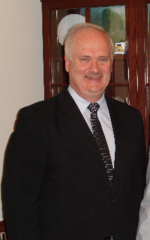 |
15 December 1994 | 26 June 1997 | Fine Gael Fine Gael Fine Gael is a centre-right to centrist political party in the Republic of Ireland. It is the single largest party in Ireland in the Oireachtas, in local government, and in terms of Members of the European Parliament. The party has a membership of over 35,000... |
|
| 14. | Bertie Ahern Bertie Ahern Patrick Bartholomew "Bertie" Ahern is a former Irish politician who served as Taoiseach of Ireland from 26 June 1997 to 7 May 2008.... |
 |
26 June 1997 | 6 May 2008 | Fianna Fáil Fianna Fáil Fianna Fáil – The Republican Party , more commonly known as Fianna Fáil is a centrist political party in the Republic of Ireland, founded on 23 March 1926. Fianna Fáil's name is traditionally translated into English as Soldiers of Destiny, although a more accurate rendition would be Warriors of Fál... |
|
| 15. | Brian Cowen Brian Cowen Brian Cowen is a former Irish politician who served as Taoiseach of Ireland from 7 May 2008 to 9 March 2011. He was head of a coalition government led by Fianna Fáil which until 23 January 2011 had the support of the Green Party and independent TDs.Cowen was also leader of Fianna Fáil from 7 May... |
 |
7 May 2008 | 9 March 2011 | Fianna Fáil Fianna Fáil Fianna Fáil – The Republican Party , more commonly known as Fianna Fáil is a centrist political party in the Republic of Ireland, founded on 23 March 1926. Fianna Fáil's name is traditionally translated into English as Soldiers of Destiny, although a more accurate rendition would be Warriors of Fál... |
|
| 16. | Enda Kenny Enda Kenny Enda Kenny is an Irish Fine Gael politician, and has been the Taoiseach since 2011. He has led Fine Gael since 2002. He served as Minister for Tourism and Trade from 1994 to 1997. He is also a two-term Vice President of the European People's Party.Kenny has been a Teachta Dála for Mayo since... |
9 March 2011 | Incumbent | Fine Gael Fine Gael Fine Gael is a centre-right to centrist political party in the Republic of Ireland. It is the single largest party in Ireland in the Oireachtas, in local government, and in terms of Members of the European Parliament. The party has a membership of over 35,000... |
||
Northern Ireland
The most recent devolved cabinetCabinet (government)
A Cabinet is a body of high ranking government officials, typically representing the executive branch. It can also sometimes be referred to as the Council of Ministers, an Executive Council, or an Executive Committee.- Overview :...
in Northern Ireland
Northern Ireland
Northern Ireland is one of the four countries of the United Kingdom. Situated in the north-east of the island of Ireland, it shares a border with the Republic of Ireland to the south and west...
is the Northern Ireland Executive
Northern Ireland Executive
The Northern Ireland Executive is the executive arm of the Northern Ireland Assembly, the devolved legislature for Northern Ireland. It is answerable to the Assembly and was established according to the terms of the Northern Ireland Act 1998, which followed the Good Friday Agreement...
, established under the Belfast Agreement
Belfast Agreement
The Good Friday Agreement or Belfast Agreement , sometimes called the Stormont Agreement, was a major political development in the Northern Ireland peace process...
. The Executive has been in operation, intermittently, since 1999; but has existed continuously since 2007. Since 1921, there have been three different prime ministerial offices in Northern Ireland.
Offices
| Office | Cabinet | Date |
|---|---|---|
| Prime Minister Prime Minister of Northern Ireland The Prime Minister of Northern Ireland was the de facto head of the Government of Northern Ireland. No such office was provided for in the Government of Ireland Act 1920. However the Lord Lieutenant, as with Governors-General in other Westminster Systems such as in Canada, chose to appoint someone... |
Government Government of Northern Ireland The Government of Northern Ireland is, generally speaking, whatever political body exercises political authority over Northern Ireland. A number of separate systems of government exist or have existed in Northern Ireland.... |
1921–1971 |
| Chief Executive | Executive (Sunningdale) Sunningdale Agreement The Sunningdale Agreement was an attempt to establish a power-sharing Northern Ireland Executive and a cross-border Council of Ireland. The Agreement was signed at the Civil Service College in Sunningdale Park located in Sunningdale, Berkshire, on 9 December 1973.Unionist opposition, violence and... |
1973–1974 |
| First Minister | Executive Northern Ireland Executive The Northern Ireland Executive is the executive arm of the Northern Ireland Assembly, the devolved legislature for Northern Ireland. It is answerable to the Assembly and was established according to the terms of the Northern Ireland Act 1998, which followed the Good Friday Agreement... |
1998–present |
List of office holders
| # | Name | Picture | Entered Office | Left Office | Party | |
|---|---|---|---|---|---|---|
| 1. | Sir James Craig James Craig, 1st Viscount Craigavon James Craig, 1st Viscount Craigavon, PC, PC , was a prominent Irish unionist politician, leader of the Ulster Unionist Party and the first Prime Minister of Northern Ireland... |
 |
7 June 1921 | 24 November 1940 | Ulster Unionist Party Ulster Unionist Party The Ulster Unionist Party – sometimes referred to as the Official Unionist Party or, in a historic sense, simply the Unionist Party – is the more moderate of the two main unionist political parties in Northern Ireland... |
|
| 2. | J. M. Andrews | 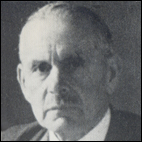 |
25 November 1940 | 1 May 1943 | Ulster Unionist Party Ulster Unionist Party The Ulster Unionist Party – sometimes referred to as the Official Unionist Party or, in a historic sense, simply the Unionist Party – is the more moderate of the two main unionist political parties in Northern Ireland... |
|
| 3. | Sir Basil Brooke Basil Brooke, 1st Viscount Brookeborough Basil Stanlake Brooke, 1st Viscount Brookeborough, Bt, KG, CBE, MC, PC, HML was an Ulster Unionist politician who became the third Prime Minister of Northern Ireland in 1943 and held office until 1963.... |
1 May 1943 | 25 March 1963 | Ulster Unionist Party Ulster Unionist Party The Ulster Unionist Party – sometimes referred to as the Official Unionist Party or, in a historic sense, simply the Unionist Party – is the more moderate of the two main unionist political parties in Northern Ireland... |
||
| 4. | Terence O'Neill | 25 March 1963 | 1 May 1969 | Ulster Unionist Party Ulster Unionist Party The Ulster Unionist Party – sometimes referred to as the Official Unionist Party or, in a historic sense, simply the Unionist Party – is the more moderate of the two main unionist political parties in Northern Ireland... |
||
| 5. | James Chichester-Clark James Chichester-Clark James Dawson Chichester-Clark, Baron Moyola, PC, DL was the penultimate Prime Minister of Northern Ireland and eighth leader of the Ulster Unionist Party between 1969 and March 1971. He was Member of the Northern Ireland Parliament for South Londonderry for 12 years beginning at the by-election... |
1 May 1969 | 23 March 1971 | Ulster Unionist Party Ulster Unionist Party The Ulster Unionist Party – sometimes referred to as the Official Unionist Party or, in a historic sense, simply the Unionist Party – is the more moderate of the two main unionist political parties in Northern Ireland... |
||
| 6. | Brian Faulkner Brian Faulkner Arthur Brian Deane Faulkner, Baron Faulkner of Downpatrick, PC was the sixth and last Prime Minister of Northern Ireland from March 1971 until his resignation in March 1972... (1st time) |
23 March 1971 | 30 March 1972 | Ulster Unionist Party Ulster Unionist Party The Ulster Unionist Party – sometimes referred to as the Official Unionist Party or, in a historic sense, simply the Unionist Party – is the more moderate of the two main unionist political parties in Northern Ireland... |
||
| Brian Faulkner Brian Faulkner Arthur Brian Deane Faulkner, Baron Faulkner of Downpatrick, PC was the sixth and last Prime Minister of Northern Ireland from March 1971 until his resignation in March 1972... (2nd time) |
1 January 1974 | 28 May 1974 | Ulster Unionist Party Ulster Unionist Party The Ulster Unionist Party – sometimes referred to as the Official Unionist Party or, in a historic sense, simply the Unionist Party – is the more moderate of the two main unionist political parties in Northern Ireland... |
|||
| 7. | David Trimble David Trimble William David Trimble, Baron Trimble, PC , is a politician from Northern Ireland. He served as Leader of the Ulster Unionist Party , was the first First Minister of Northern Ireland , and was a Member of the British Parliament . He is currently a life peer for the Conservative Party... |
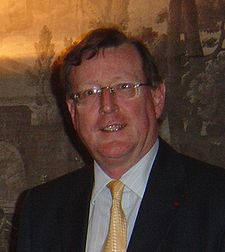 |
1 July 1998 | 14 October 2002 | Ulster Unionist Party Ulster Unionist Party The Ulster Unionist Party – sometimes referred to as the Official Unionist Party or, in a historic sense, simply the Unionist Party – is the more moderate of the two main unionist political parties in Northern Ireland... |
|
| 8. | Ian Paisley Ian Paisley Ian Richard Kyle Paisley, Baron Bannside, PC is a politician and church minister in Northern Ireland. As the leader of the Democratic Unionist Party , he and Sinn Féin's Martin McGuinness were elected First Minister and deputy First Minister respectively on 8 May 2007.In addition to co-founding... |
.png) |
8 May 2007 | 5 June 2008 | Democratic Unionist Party Democratic Unionist Party The Democratic Unionist Party is the larger of the two main unionist political parties in Northern Ireland. Founded by Ian Paisley and currently led by Peter Robinson, it is currently the largest party in the Northern Ireland Assembly and the fourth-largest party in the House of Commons of the... |
|
| 9. | Peter Robinson Peter Robinson (politician) Peter David Robinson is the current First Minister of Northern Ireland and leader of the Democratic Unionist Party... |
 |
5 June 2008 | Incumbent | Democratic Unionist Party Democratic Unionist Party The Democratic Unionist Party is the larger of the two main unionist political parties in Northern Ireland. Founded by Ian Paisley and currently led by Peter Robinson, it is currently the largest party in the Northern Ireland Assembly and the fourth-largest party in the House of Commons of the... |
|
See also
- President of IrelandPresident of IrelandThe President of Ireland is the head of state of Ireland. The President is usually directly elected by the people for seven years, and can be elected for a maximum of two terms. The presidency is largely a ceremonial office, but the President does exercise certain limited powers with absolute...
- Irish cabinets since 1919Irish cabinets since 1919-Republic of Ireland :The executive branch of the modern Republic of Ireland is known as the Government. However, since 1919, cabinets have functioned in the southern twenty-six counties of Ireland under two other names: the Aireacht of the 1919–1922 Irish Republic, and the Executive Council...
- History of the Republic of IrelandHistory of the Republic of IrelandThe Irish state originally came into being in 1922 as the Irish Free State, a dominion of the British Commonwealth, having seceded from the United Kingdom under the Anglo-Irish Treaty. It comprises of 26 of Ireland's 32 counties...
- History of Northern IrelandHistory of Northern IrelandNorthern Ireland is today one of the four countries of the United Kingdom, situated in the north-east of the island of Ireland, having been created as a separate legal entity on 3 May 1921, under the Government of Ireland Act 1920...
- Politics of the Republic of IrelandPolitics of the Republic of IrelandIreland is a parliamentary, representative democratic republic and a member state of the European Union. While the head of state is the popularly elected President of Ireland, this is a largely ceremonial position with real political power being vested in the indirectly elected Taoiseach who is...
- Records of Irish heads of government since 1922

